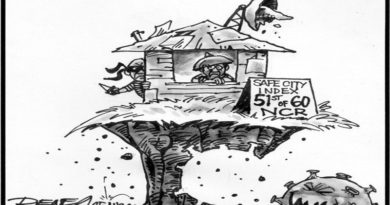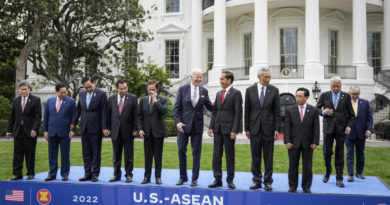EDITORIAL-OPINION: ‘Bubbles’ need care
BANGKOK POST EDITORIAL COLUMN

The government is upbeat about a plan to open travel bubbles with several countries, a move which is crucial to restoring international links to boost the economy.
Japan and China are among the countries which the government has targeted for travel bubbles, as the nation is in dire need of the eventual return of foreign tourists.
Like other countries struggling with the economic impact of a lockdown, the economy faces a tough time ahead. The latest move by the Bank of Thailand which ordered commercial banks to suspend interim payouts to shareholders seems to paint a picture of dismal economic prospects.
.


BoT governor Veerathai Santiprabhob said that since Covid-19 had caused widespread impacts on businesses and the public, economic uncertainty remains high and could affect the asset quality of commercial banks.
As a result, interim dividend and share buyback payouts have been put on hold.
The BoT’s unusual order has sent a signal of economic uncertainty, as it must see some signs of serious economic problems despite the government’s planned travel bubbles.
It’s true that the bubbles, where travel is permitted among specific countries where the Covid-19 pandemic has been brought under control, offer a potential way for economic recovery.
The bubbles are considered as one way to restore the economy which has been devastated as a result of a global halt in tourism and international travel. It is a light at the end of the tunnel for tourism-related businesses.
.


Baltic states Estonia, Latvia and Lithuania launched the first bubble in mid-May, allowing citizens to move freely between the countries for business and pleasure.
New Zealand and Tasmania in Australia are working to open a trans-Tasman bubble next month.
The Economist estimates potential bubbles will account for around 35% of global gross domestic product, 39% of all trade in goods and services and 42% of the world’s spending on tourism.
The government is now hoping to rejoin the global tourism bandwagon.
But, on the other side of the coin, travel bubbles also expose risks given their mutual agreement on a waiver of 14-day quarantine for travellers.
New Zealand’s bubble plan suffered a hiccup after two women flew to Auckland from London and were allowed to leave quarantine to attend a funeral. They tested positive for coronavirus two days later, upsetting the New Zealand government, which had boasted of having eradicated the virus.
.


As of yesterday, Thailand has reported zero local coronavirus transmissions for 27 consecutive days. New infectious have all been among those who returned from aboard and are being quarantined.
Without strict control, travel bubbles might generate a second wave of infections and the economy, based on the Bank of Thailand’s signals, could be even more catastrophically damaged.
The government said it would reserve 100-200 billion baht in case the infection returns following lockdown easing. But even 200 billion baht would not be enough. Over the past four months, the government has spent 400 billion baht to assist people and sectors affected by Covid-19 to survive.
.


As a result, the government needs to be prudent in deciding its policy on travel bubbles, especially in terms of risk to the economy.
EDITORIAL
BANGKOK POST EDITORIAL COLUMN
These editorials represent Bangkok Post thoughts about current issues and situations.
Email : [email protected]


SIGN UP TO RECEIVE OUR EMAIL
.
The most important news of the day about the ASEAN Countries and the world in one email: [email protected]
6.22.2020









